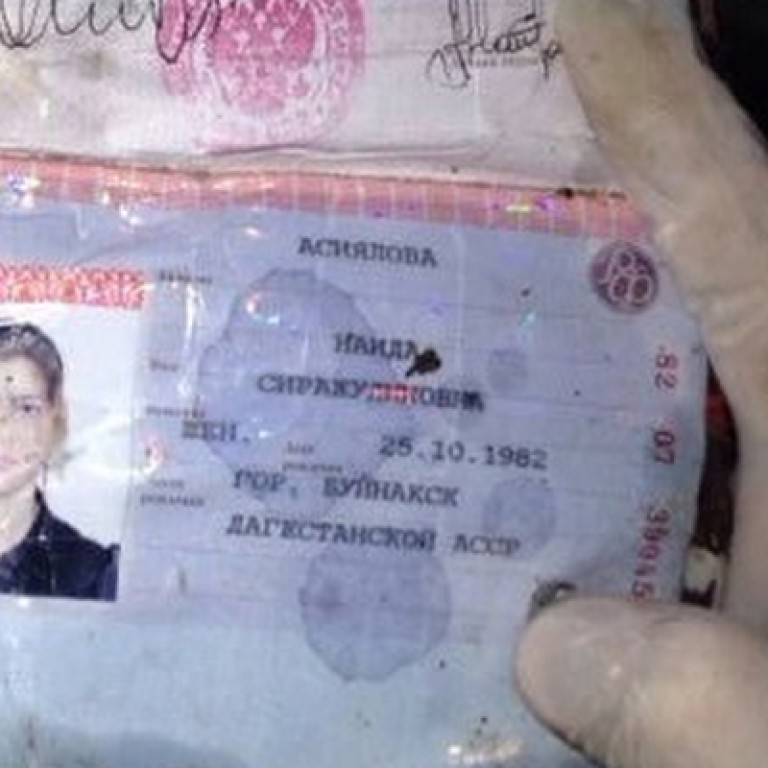
Russians seek husband of Volgograd bus suicide bomb suspect
Russian investigators are delving into the background of a woman from the restive Caucasus region who is believed to have set off a suicide bomb aboard a crowded bus in the southern Russian city of Volgograd.
Russian investigators are delving into the background of a woman from the restive Caucasus region who is believed to have set off a suicide bomb aboard a crowded bus in the southern Russian city of Volgograd.
Six passengers and the bomber were killed in Monday's blast. Thirty-three people were injured.
Authorities identified the bomber as Naida Asiyalova, 30, from the Russian republic of Dagestan. They said she was believed to be the wife of a North Caucasus rebel whom she met in college and may have recruited to the separatist movement.
"This woman wearing a head scarf entered the bus at a bus stop, and shortly after an explosion happened," Vladimir Markin, spokesman for Russia's Investigative Committee, said. "This was confirmed by a woman who survived."
Asiyalova was four days shy of her 31st birthday, according to a passport found near the scene that shows her in a photograph wearing a black head scarf, and she was apparently very ill.
A page on a Russian social media website pleaded for donations to help her obtain medical treatment for a painful disease that had weakened her bones and left her dependent on painkillers and tranquillisers.
A news channel ran dramatic footage of the bus, moving at a high speed, first shaken by an impact, with flames shooting out from its right side, then engulfed in smoke as debris from the explosion flew in all directions.
Watch: 'Black widow' female suicide bombing caught on video

Russian media said the bomber had been sent on her mission by her husband.
Komsomolskaya Pravda said Asiyalova had introduced her husband to militants. Sokolov, who went missing in July 2012, converted to Islam and is believed to have developed an interest in explosives. The newspaper said that Sokolov is believed to have made Asiyalova's suicide belt. According to the online publication Kavkavpress.ru, Sokolov became involved as a college student with Wahhabism, a radical branch of Sunni Islam, and sought contacts with radicalised Islamist activists.
Sokolov is reportedly leading an underground armed resistance cell in Makhachkala, the capital of Dagestan, a city that came under scrutiny recently because of the Boston Marathon bombing. One of the Boston suspects, Tamerlan Tsarnaev, spent time there last year and his parents still live there.
